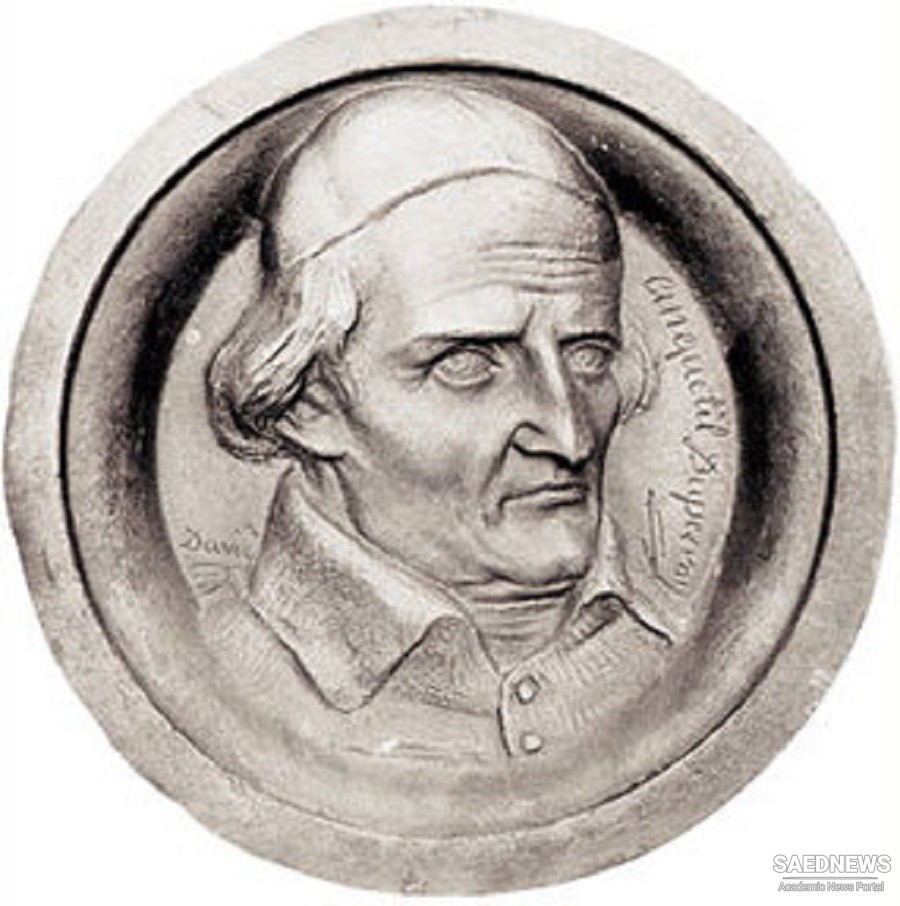He inspired the founding of the École française d'Extrême-Orient a century after his death. The library of the Institut français de Pondichéry is named after him. Abraham Hyacinthe Anquetil was born in Paris on 7 December 1731 as the fourth of seven children of Pierre Anquetil, a spice importer. As was the custom of the time, the name of one of his father's estates, 'Duperron', was added to his name to distinguish him from his brothers. Anquetil-Duperron initially distinguished himself in the study of theology at Paris and Utrecht with the intention of becoming a priest like his elder brother Louis-Pierre Anquetil. In the course of his studies, however, he acquired such an interest in Latin, Hebrew, and Greek that he chose to devote himself entirely to philology and classical studies and discontinued his clerical training. He travelled to Amersfoort near Utrecht to study oriental languages, especially Arabic, with the Jansenites who were exiled there. On returning to Paris, his attendance at the Royal Library (Bibliothèque du Roi, now the National Library) attracted the attention of the keeper of the manuscripts, Abbé Sallier, who hired Anquetil-Duperron as an assistant on a small salary.
In 1754, Michelangelo-André Le Roux Deshauterayes who at the time was professor for Arabic at the Collège Royal, showed Anquetil-Duperron a facsimile of four leaves of a Vendidad Sade that had been sent to Deshauterayes's uncle Michel Fourmont in the 1730s in the hope that someone might be able to decipher it. The original was at Oxford's Bodleian Library, but the script was not recognized, and so the manuscript was placed in a box chained to a wall near the library's entrance and shown to everyone who might be able to identify the curiosity.[5] Also at the Bodelian was the manuscript collection of James Fraser (1713–1754), who had lived in Surat (a city in present-day Gujarat, India) for over sixteen years, where he had been a Factor of the British East India Company and later Member of Council. Fraser had returned to Britain with some 200 Sanskrit and Avestan manuscripts, which he intended to translate, but he died prematurely on 21 January 1754.
In his later travelogue, Anquetil-Duperron is sharply critical of the English, both of Fraser's "failure" to accomplish what he intended, and of the Bodelian's failure to realize that Thomas Hyde's manuscripts, which the Bodelian also had in its possession, included a transliteration table for Avestan script. Playing on the French antipathy towards the English, in his travelogue he later claimed that after seeing the facsimile pages of the Oxford manuscript, he resolved to "enrich [his] country with that singular work" and the translation of it. There was a government interest in obtaining eastern manuscripts; Anquetil-Duperron obtained a mission from the government to do so but, unable to afford his own passage to India, he enlisted as a common soldier for the French East India Company on 2 or 7 November 1754. He marched with the company of recruits from the Parisian prisons to the Atlantic port of L'Orient, where an expedition was preparing to depart. His friends secured his discharge and, on 7 February 1755, the minister, touched by his romantic zeal for knowledge, granted him free passage, a seat at the captain's table, an allowance of 500 livres from the library, and a letter of introduction to the French governor in India which would entitle him to a small salary while there. Anquetil-Duperron left France as a free passenger on 24 February 1755.


 André du Ryer
André du Ryer














































